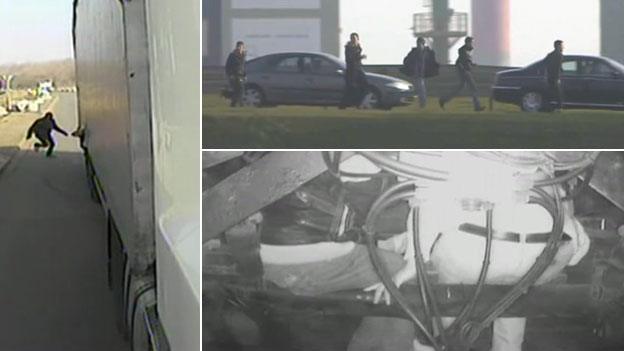'Desperate migrants' waiting to pounce on Calais truckers
- Published
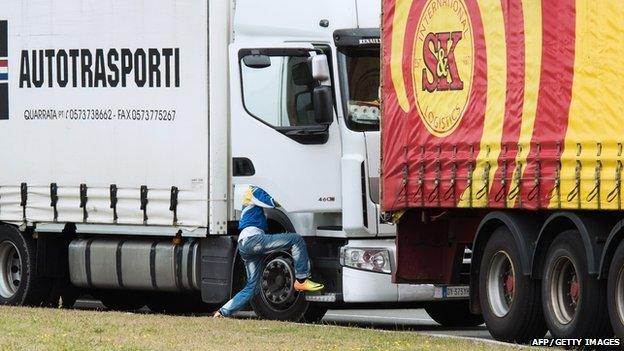
France believes there are 1,500 illegal immigrants in Calais, the numbers having increased by 50% in the past year as people flee from humanitarian crises in northern and eastern Africa and the Middle East
As protesters in support of lorry drivers threaten to demonstrate at the Port of Dover, what is the impact of illegal migrants on those drivers who regularly make the journey across the English Channel?
Richard McMurray has been a long distance driver with Britannia Appleyard Removals, based in Rotherham, South Yorkshire, for nine years, and travelled back to the UK via ferry from Calais on Wednesday night.
"Whenever I stop, I make sure all my doors are locked, and before I set off I check under the wagon.
"We travel in pairs - one will fuel up and the other will stand outside the wagon," he said.
"The migrants are blatant in what they do, and will literally stand by the road waiting for an opportunity.
"At least four or five them. Checking for unlocked doors. They don't mess about, they just pounce straight away."
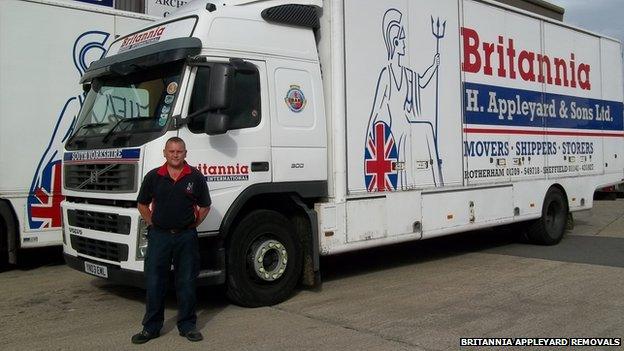
Richard McMurray said the £2,000 fines faced by lorry drivers caught with stowaways could ruin their lives
Mr McMurray recalled how he had been waiting in the so-called secure compound at Calais when he saw four people get into the back of an unattended lorry, while another shut the door on them.
"I waited for the driver to come back to tell him. He made sure they got out of the lorry and then checked it over."
If found with an illegal passenger on entering the UK, a driver and his employer can each be fined up to £2,000 per migrant and have their operating licence revoked.
"Fines could ruin people's lives," Mr McMurray said.
He told of another driver who found a migrant had climbed behind the windbreaker on top of his lorry.
"Unfortunately, he was heading into France and when the man began knocking he carried on driving for a couple of hours to teach him a lesson.
"I feel sorry for them in a way... they're obviously running from something."
Mr McMurray said there was a noticeable increase in French police along the main approach to the port compared to the last time he was there, and as a result fewer migrants.
"But the police just pull them out of the wagons, frogmarch them back to the gates, and they are left to try again," he said.

According to Home Office figures, more than 19,000 "clandestine entrants" were caught trying to enter the UK in vehicles or trains in 2013-14, compared to 11,731 in 2012-13.
Mark Horner, who works for Brian Yeardley Continental, based in Featherstone, West Yorkshire, said the number of migrants in Calais was quite intimidating.
"As soon as you stop they're on to the truck."
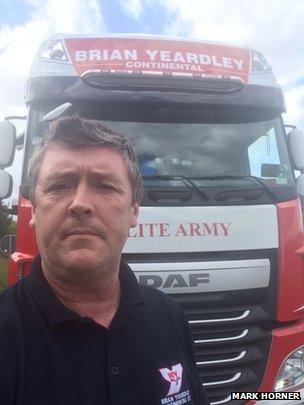
Mark Horner fears it is only a matter of time before a driver is seriously injured by missiles being hurled
His final stop before reaching Calais is always three hours away from the port where it is "relatively safe", but he fears the migrants are moving further out from the town in their quest to hide onboard a vehicle.
He also avoids the notorious road nicknamed "diesel alley" - where there are several refuelling stations, and hundreds of migrants.
"Bricks and bottles are thrown at the trucks to make them stop. It's too risky," he said.
"More protection is needed - it's only a matter of time before a driver gets killed or seriously injured."
Mr Horner said migrants often jumped out in front of his lorry, but he just had to carry on driving, weaving in and out of them on the road.
"You're literally by yourself... the police presence is nothing you'd want.
"It's a game of chase for the immigrants, who run in opposite directions.
"Police move them on an hour down the road and they just walk back."
Last week the UK government pledged £12m to help France tackle the problems, with the two countries promising to work more closely.
Mr Horner said he would like to see armed police or the Army guarding the port - either French or British, although he felt that ultimately it was "a UK problem".
"We give benefits out... we offer them everything - they all want to come to the UK."

Matt Cherry has been driving through Calais at least three times a month for the last eight years with the haulage firm EM Rogers, based in Northampton.
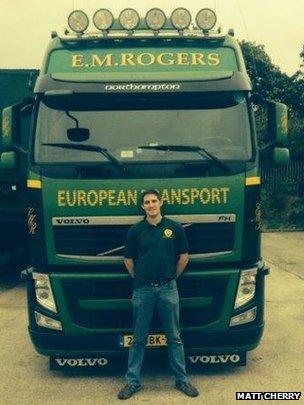
Matt Cherry says the migrants trying to get to the UK are now "far more determined and ruthless"
Over the years he has seen the problem with migrants escalate.
The French government believes there are 1,500 illegal immigrants in the port town, the numbers having increased by 50% in the past year as people flee from humanitarian crises in northern and eastern Africa and the Middle East.
Mr Cherry said they were now "far more determined and ruthless".
"They're running about, trying to open the trailer, laying down in the road," he said.
"They're desperate people, they'll try anything.
"You're potentially away from home for two or three weeks - it's the last thing you need when you just want to get the boat back to the UK.
"You're just trying to do your job."
Mr Cherry said the migrants had "come from nothing, had got nothing, and had nothing to lose".
"They've travelled through the whole of western Europe but still want to get to the UK, because we're a soft touch."
- Published24 September 2014
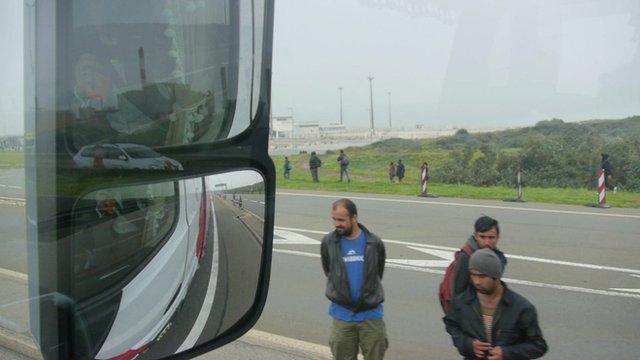
- Published22 September 2014
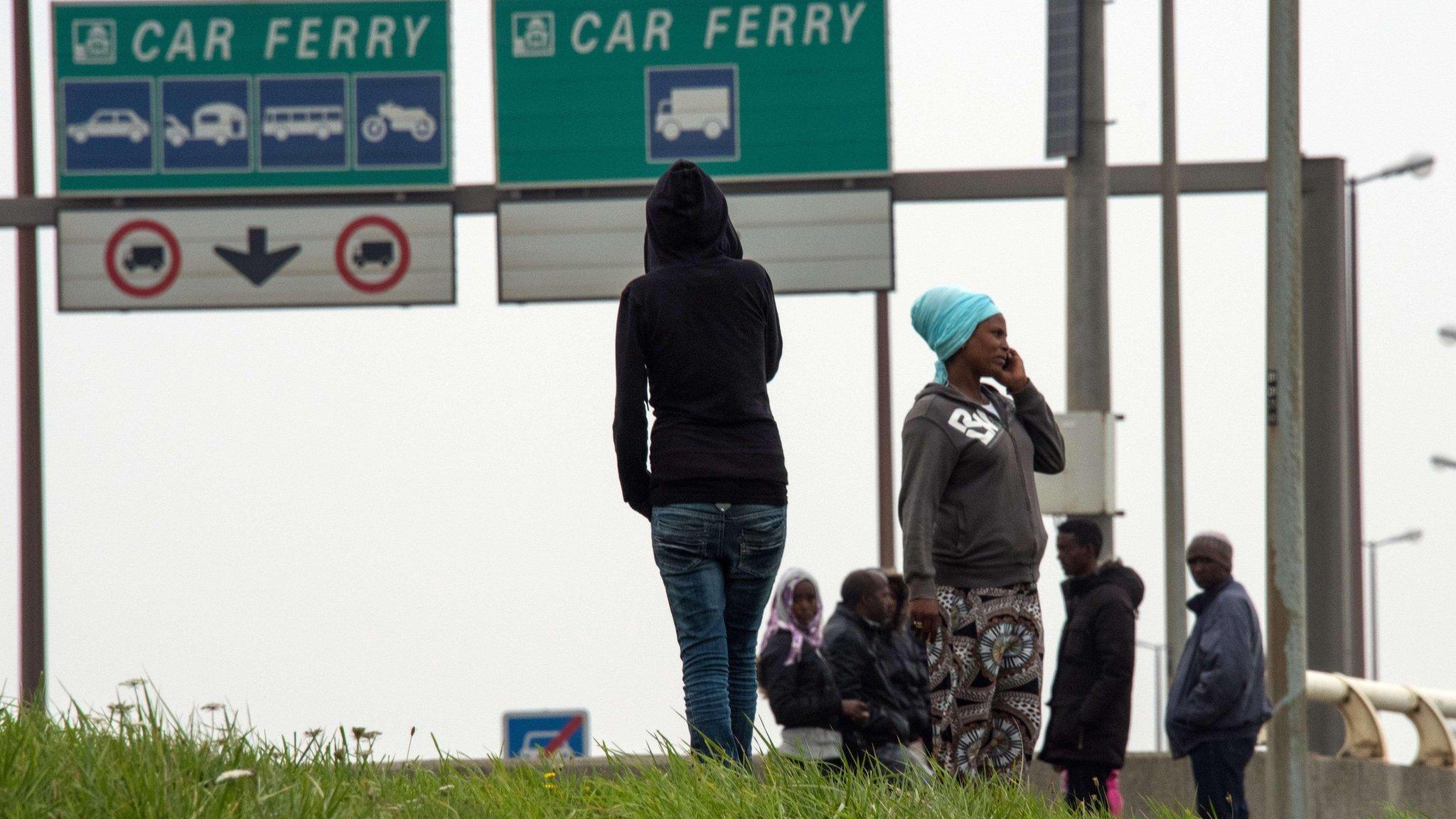
- Published20 September 2014
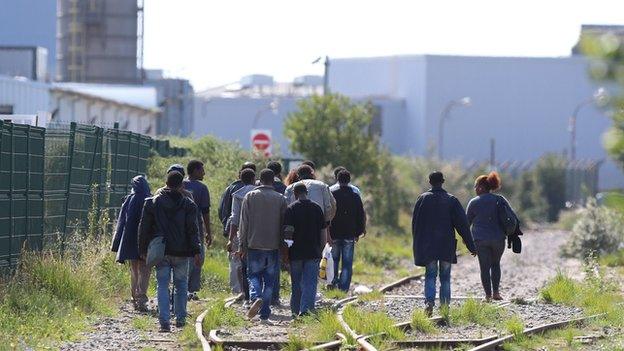
- Published6 September 2014
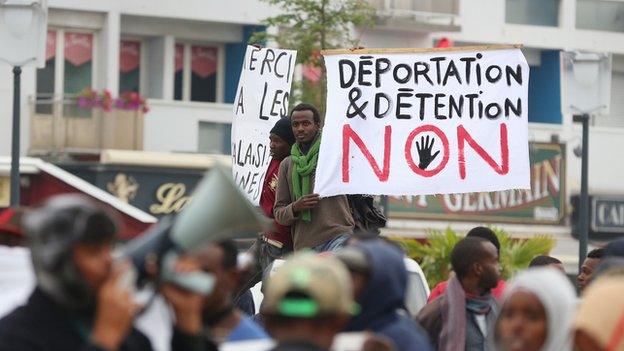
- Published22 July 2014
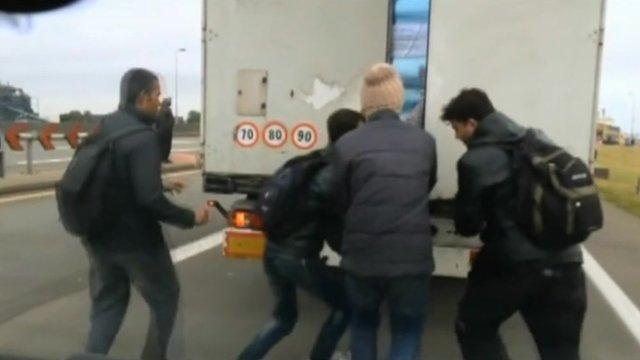
- Published3 July 2014
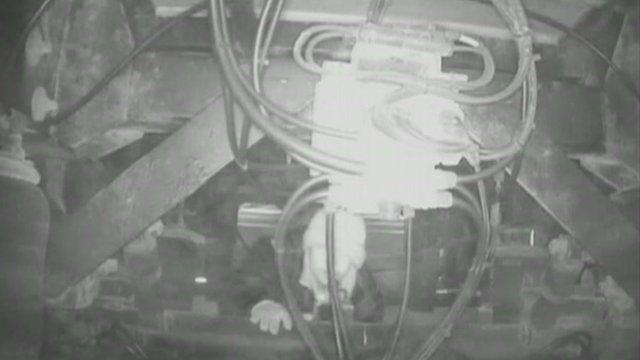
- Published24 March 2014
